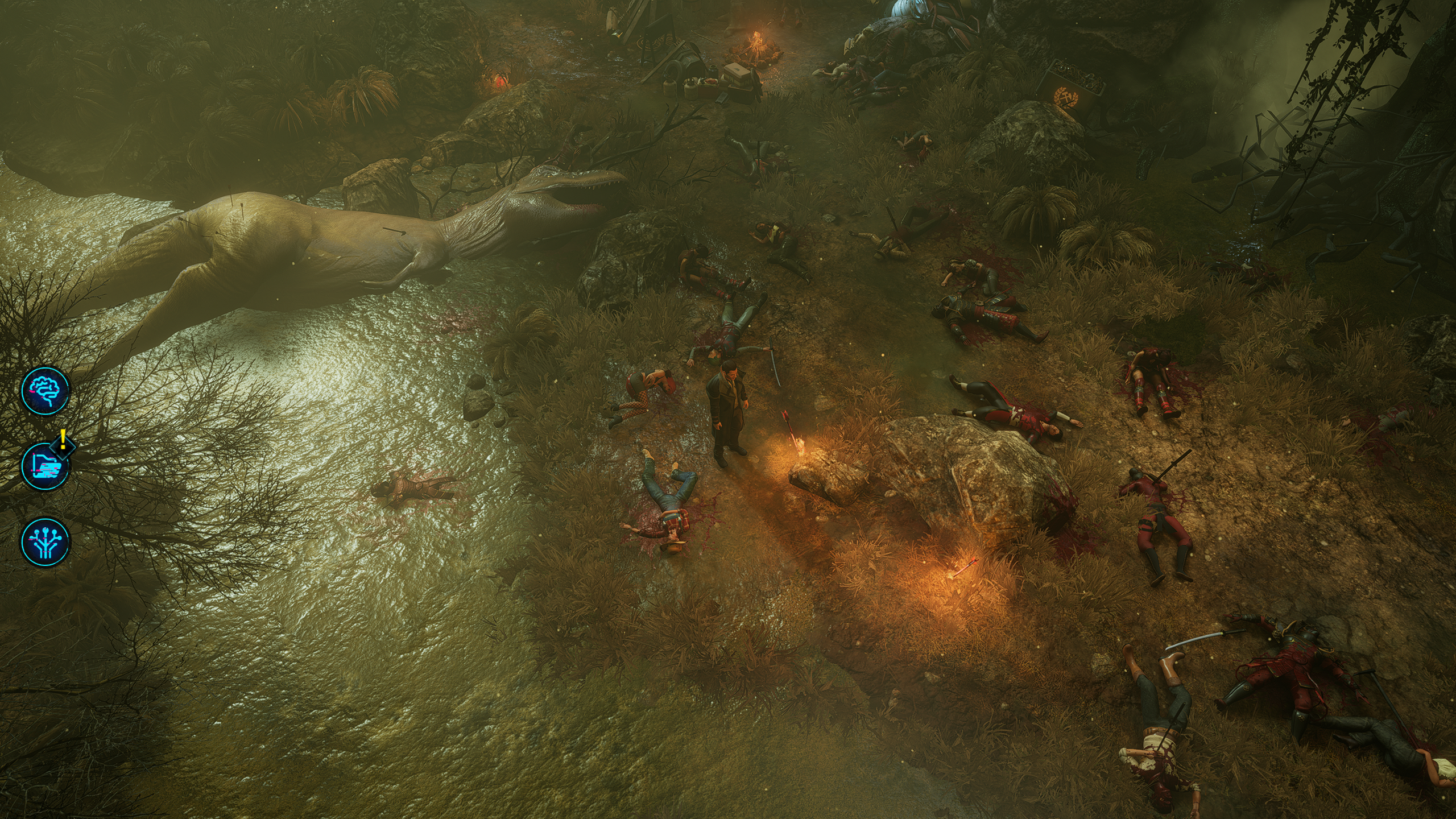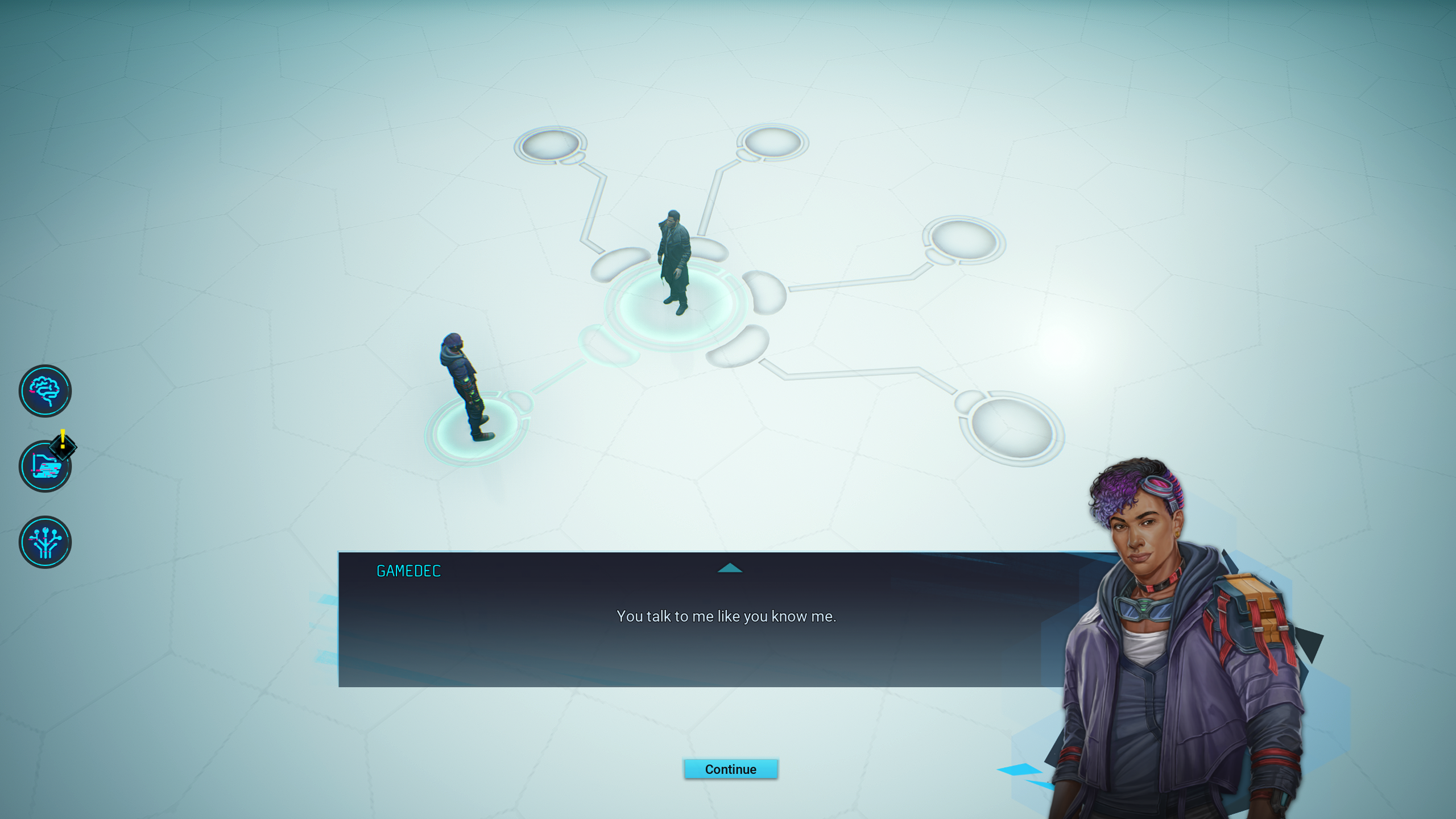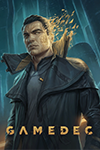Gamedec
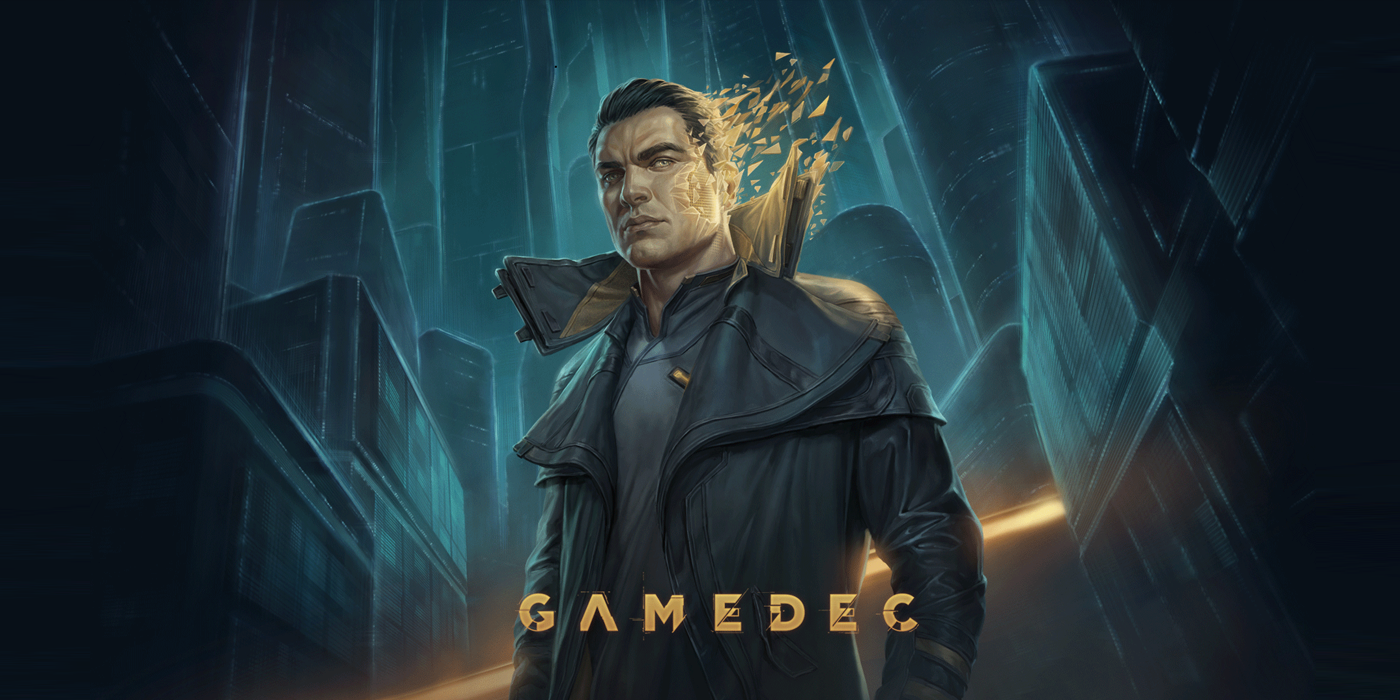
I’ve always been a fan of detective shows. When I was growing up, my dad would watch every cop drama under the sun, and it was a nightly ritual for us to watch one or two together before I went to bed. Whether it’s an eccentric classic like Poirot or the more bombastic Law & Order, I’m an unashamed fan of crime shows, and an even bigger sucker for the games. I ate up Heavy Rain and had fun cruising through Tinseltown in L.A.Noire, so it should come as no surprise that cyberpunk sleuth RPG, Gamedec from Anshar Studios, caught my eye.
At A Glance
| Scores | |
| Visuals | 7 /10 |
| Sound | 6 /10 |
| Gameplay | 5 /10 |
| Overall | 6/10 |
| Positives | + Deep, well-thought out world and lore + Great job system that rewards your choices + Good replay value |
| Negatives | – Movement controls are laboured – Plot gets convoluted in the middle – Jargon can sometimes be difficult to follow |
| Price (When Reviewed) | £26.99 |
| Our Playtime | 14 hours |
| Available On | Nintendo Switch, PC |
Gamedec has a very interesting premise. It’s the 22nd century and use of videogames and online services has exploded; games and entirely new cyber-societies now exist in detailed virtual reality spaces. With tiered megacities eating up the land, eSports and online celebrities are at the forefront of entertainment, with more traditional mediums cast aside. And as online spaces become a greater part of people’s daily lives, cyber-crime too becomes all the more prevalent, with users keen to exploit weaknesses in the code and install cheats to give them the leg up on the opposition.
You play as a gamedec; an independent contractor who acts as a detective for these virtual spaces, solving cyber-crimes of all shapes and sizes. I immediately found the setting and lore incredibly engaging and well thought out, and that made more sense when I realised that the game was based on the short stories of noted sci-fi writer, Marcin Przybyłek. From the moment you awaken in your room and stare out of the window at the high-rise metropolis of Warsaw, it was clear that this a world steeped in history, and whose lore had roots that ran much deeper than the screens you inhabit as a player.
You’re not molly-coddled with the setting either; characters will use all manner of jargon and make reference machines and equipment in conversation without needlessly explaining for the benefit of the unseen player. All of the lore is stored in your Codex screen which can be accessed at the tap of a button, and will be updated contextually as you discover more about the world and the people who inhabit it. While this free use of language and reference to the lore is incredibly immersive and certainly sells the authenticity of the setting, it can sometimes leave you in a bit of a spin – especially if you’ve not checked through your codex in a while and you’re out of the loop on a few items.
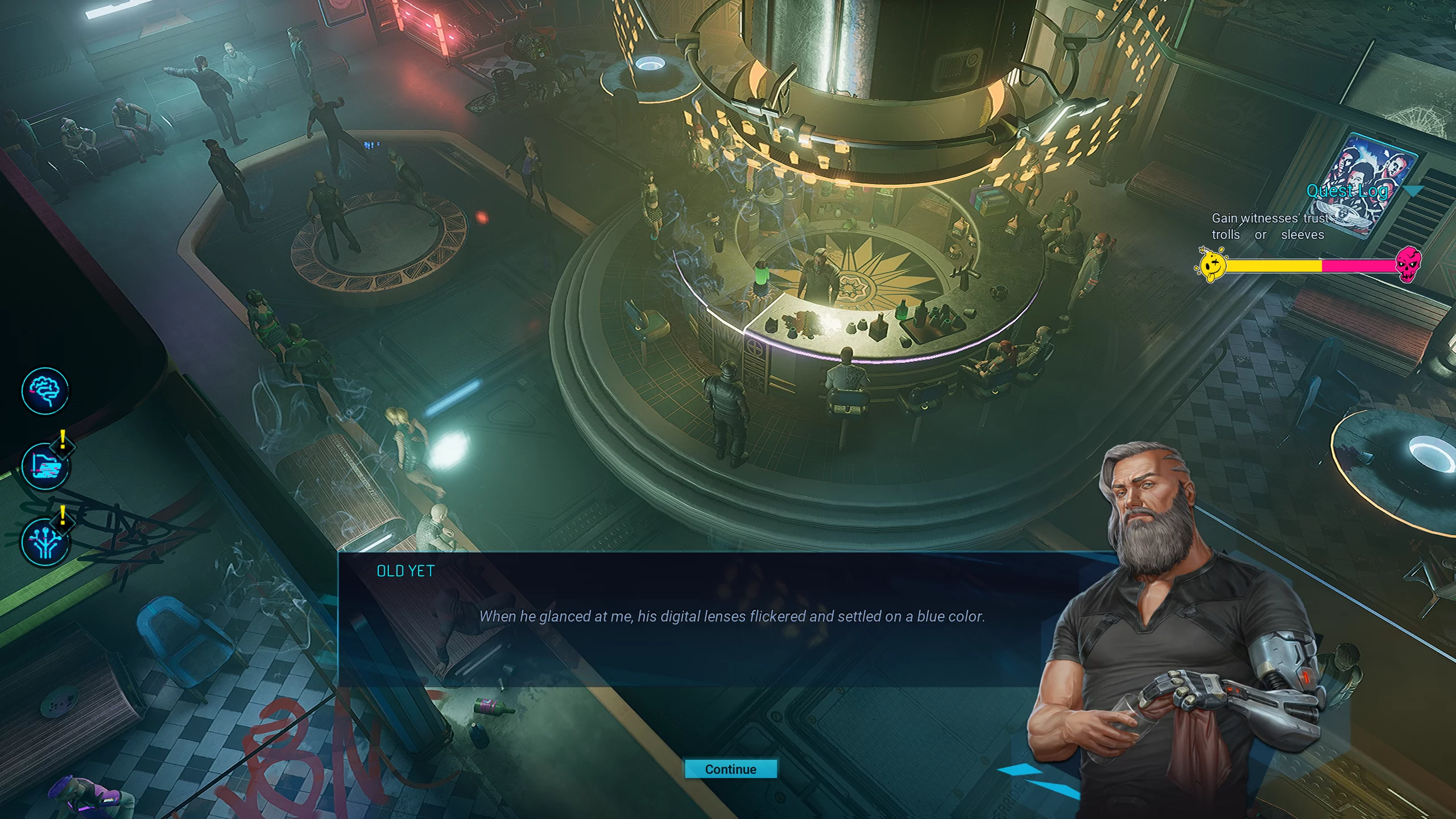
The game plays out as an old-school isometric RPG, where your conversations with other characters wholeheartedly drive the plot. There’s absolutely no combat in Gamedec, and you’re asked to use your wits and deductive skills rather than worrying about accuracy stats and the highest DPS weaponry. You’re offered a number of dialogue options during each conversation, and it’s up to you to choose the ones that you think will lead to your suspect offering up what you want to know. Be warned though, the NPCs you’ll encounter in Gamedec have individual personalities, likes and dislikes, and one wrong word can see them shut you down, leading to an entire line of questioning becoming closed off to you. Gamedec has you prioritising your topics from the get-go, lest you tread on someone’s toes and miss out on a vital clue to your case.
Being a game with no action scenes, Gamedec puts the focus on the social elements, and rewards your conversation choices with skill points in one of four Aspects based around forwardness, ingenuity, deduction or empathy . These points can later be used to purchase abilities, known as Professions, that offer exclusive dialogue options at relevant points in the conversation – these will open up new potential routes for your investigation that you’d otherwise be unable to undertake.

The system is similar to some tabletop RPGs, where characters have a spectrum of statistics governing their social abilities, and players can choose to either utilise their charm or their forceful nature where appropriate. It’s a simple idea but one that’s highly effective and very well executed – you’ll be rewarded with the appropriate trait points regardless of the options you choose, and you can clearly feel the progression in your character as the game rolls on and more Professions become available.
As your investigations progress you’re given questions to answer on your Deduction screen. Your gamedec will collect clues to these questions as you converse with suspects and witnesses, and these will lead to a selection of suggested answers based on what you’ve learned – it’s your job to discern the correct answer based on the evidence at hand. You can jump to a conclusion immediately if you like, but I found it much more worthwhile waiting until the case hinged on one of your decisions, and you had to make a choice in order to progress. While it’s technically possible to select the ‘wrong’ answer and pursue a false line of enquiry, the game never punishes you for this – the plot simply takes you down a different road and leads to a different conclusion. This feeling of never point scoring does wonders for Gamedec’s enjoyability, where you’re able to focus on how you want to proceed rather than worry about the risk to your potential rewards.

One thing I can say about Gamedec is that it doesn’t pull any punches with the cases you’re assigned – there’s been some real thought put into the societal and criminal complexities in a world where virtual reality is so heavily utilised. Whilst never straying into the graphic or especially shocking, Gamedec offers pretty realistic insights into some prickly topics, such as age-restricted content and slave labour in a heavily cyber-focused society. The nuances of the cases certainly shows off the strength of the original writing and manages to address sensitive issues without being uncomfortably explicit. That being said, the script for Gamedec isn’t always as solid as you’d hope, and there are moments when the dialogue feels forced, or again, too heavily littered with jargon.
I enjoyed the visuals for Gamedec, which were solid without being especially flashy. Anshar Studios’ vision of a futuristic Warsaw was nicely executed, showing off some nice architecture, tech designs and environmental lighting along with some dirt and grime that added realism to the scenes. I initially thought that the HUD was a little bit messy and over the top, but it didn’t take me long to settle in with it, and in fact appreciate having all of the menus easily accessible at the push of a button. Less effective though were some of the particle effects that occurred within the game environments, along with the general movement animations which felt a little clumsy.

And speaking of movement, the controls for moving your character around weren’t especially pleasant either. It sometimes felt like your gamedec was too heavy for the control stick and he just wouldn’t turn the way that you wanted him to, or you’d be forced into running in a little circle just to have him change his facing direction so you can interact with an icon on screen. This was particularly belligerent in the games’ final chapter, and lumbering my gamedec around was an annoyance that prickled me throughout the experience.
Gamedec does suffer with some common problems shared throughout games with conversational mechanics though, most notably when the dialogue choice you select takes a different tone than the one you expected and the outcome then isn’t what you’d hoped. While not as egregious as Detective Phelps in L. A. Noire, there were a couple of occasions where my gamedec opened his mouth and tweaked the words from those I’d chosen, giving the conversation a very different flavour that the one I had opted for. Additionally, being a story based around crime and deduction, sometimes the game puts clues together and comes up with an entirely different, and I’d argue sometimes irrational conclusion, and some of the deduction options seemed to be there to fill out the space rather than as a realistic line of enquiry.
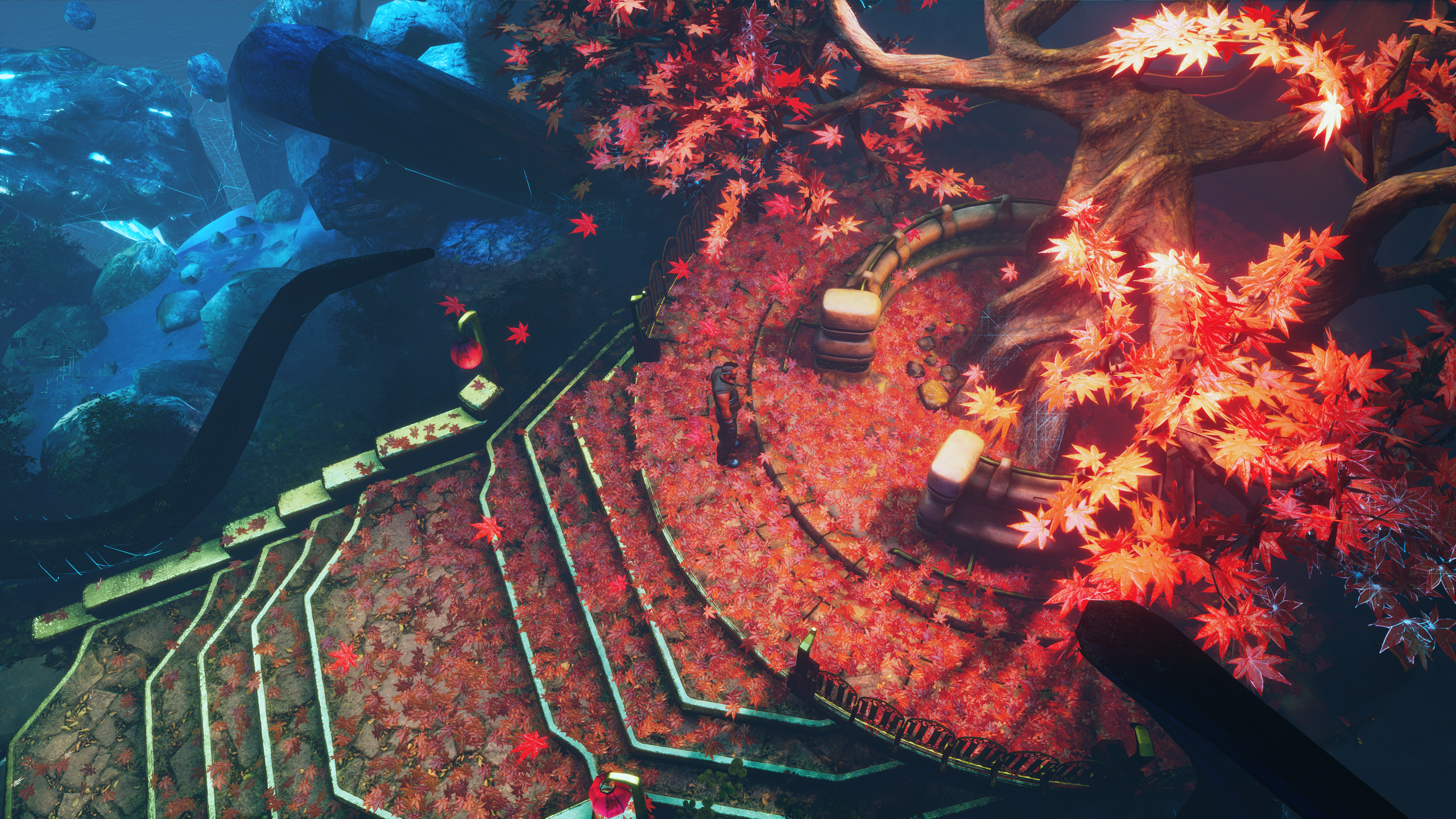
While I really enjoyed the beginning and the ending of the story, I felt that it got bogged down a little in the middle, where recurring characters reappear in different cyber-guises and keeping track of relationships becomes difficult. There’s two cases back-to-back that were interesting from a gameplay perspective but less so from a story point-of-view, and I felt that the flow of the game suffered as a result – thankfully, things build to a nice crescendo and you’re sent off with a satisfying ending to the tale.
With a magnificent setting, well structured social mechanics and a really effective upgrade system, Gamedec brings a lot to the table. While held back by a muddy middle act, moments of ropey dialogue and some swampy movement controls, Gamedec has other areas that shine – exploring the mega-city of Warsaw and investigating its residents is good fun, and makes wonderful use of the rich source material. The lack of hands-on action will make this a non-starter for some players, but fans of old school RPG’s like the Fallout and Baldur’s Gate will find that the intrigue more than makes up for the lack of dice rolls.
